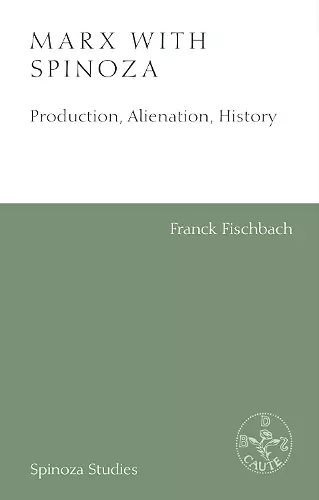Marx with Spinoza
Production, Alienation, History
Franck Fischbach author Jason Read translator
Format:Hardback
Publisher:Edinburgh University Press
Published:14th Jun '23
Currently unavailable, and unfortunately no date known when it will be back

Spinoza and Marx would seem to be two very opposed philosophers. Spinoza was interested in contemplating eternal truths of nature while Marx was interested in the history of capital. Franck Fischbach suggests that by reading the two together we may better understand both history and nature, as well as ourselves, making possible a new understanding of human nature. Rather than see history and nature as opposed, history is nothing but the constant transformation of nature. Central to this transformation is a new understanding of alienation not as loss of the self in a world of objects, but as loss of objects in a world that disconnects us from nature and social relations, leaving us isolated as a subject. The isolated individual, the kingdom within a kingdom, as Spinoza put it, is not the condition of our liberation but the basis of our subjection.
Fischbach’s book provides a crucial counterbalance against the presumed affinity between Marx’s later works and Spinoza’s monist metaphysics. -- Kenneth Novis * Marx and Philosophy Review of Books *
By employing Spinoza as a lens or filter for rereading Marx, Fischbach’s wonderfully lucid analysis not only demonstrates how much the two thinkers share foundational philosophical arguments but also casts a new light to illuminate Marx’s work as a whole. * Michael Hardt, Duke University *
Twentieth-century Marxism has often turned to Spinoza to breathe new life into Marx's thought (think of Louis Althusser and Antonio Negri). In a similar vein, Franck Fischbach offers us an astonishing new reading of Marx's 1844 Manuscripts in the light of Spinoza, simultaneously generating an original reading of Spinoza in the light of Marx. At the intersection of these two interpretive movements lies a novel conception of alienation, which, in Fischbach's hands, becomes a sharp theoretical tool for reading the present. * Vittorio Morfino, University of Milan-Bicocca *
ISBN: 9781399507660
Dimensions: unknown
Weight: unknown
160 pages